Dermatology
Dermatology at MDI Clinic exceeds all client expectations. The doctors have vast experience in dermatologic diseases and will diagnose the condition with jewel-like precision. Any problems with skin, hair, nails will be eliminated thanks to the complex treatment selected by our specialists. In their practice, specialists use modern drugs and treatment regimens.
Diagnostic methods in dermatology MDI Clinic
Dermatologic diagnosis includes clinical evaluation, history, visual examination of cutaneous manifestations, and, if necessary, additional instrumental studies.
With the advancement of genetic research, it is becoming possible to identify genetic mutations associated with various skin diseases. This allows for more accurate diagnosis of these diseases and the development of individualized treatments based on a patient’s genetic profile.
Diagnosis consists of:
- visual inspection – to detect the presence of rashes, changes in color, texture, hair and other pathological signs;
- dermatoscopy – with the help of a special dermatoscope device, there is a possibility of scanning a more detailed image of skin changes. This method can determine the presence of dermatologic diseases;
- Biopsies – to identify malignancy or other serious conditions, dermatologists extract tissue for laboratory testing;
- laboratory tests – with blood tests, microbiologic studies, immunologic tests.
Therapies at MDI Clinic
Dermatology offers a variety of treatments that depend on the type and extent of the disease. The therapy consists of:
- taking topical preparations – topical treatment with creams, ointments, gels and solutions based on anti-inflammatory, antifungal, antitumor components;
- taking systemic medications. This applies to situations where there is no effect with topical treatment. The administration of antibiotics, immunosuppressants, vitamin D preparations, and hormonal drugs may be oral or intravenous;
- phototherapy – using special devices (UV lamps) to irradiate the skin with waves of light. This method is relevant for psoriasis, eczema, vitiligo;
- laser therapy – to correct scars, pigmentation, vascular changes, removal of moles. Laser technology allows for precise and effective treatment of problem areas of the skin without damaging the surrounding tissues;
- surgical intervention – to remove tumor, cysts, benign and malignant growths. Excision, cryodestruction, and electrosurgery are commonly used;
- cosmetic procedures – MDI Clinic is dedicated to cosmetic procedures (botulinum toxin injections, fillers, chemical peels, laser resurfacing) to improve skin appearance and correct age-related changes;
- the use of biologically based medicines – thanks to monoclonal antibodies and growth factors, they have a significant impact in the treatment of psoriasis, eczema, atopic dermatitis and acne. The components of the drug reduce inflammation, improve the regenerative process and strengthen the immune system.
MDI Clinic specialists introduce modern innovative therapies on a daily basis to improve the appearance of the skin. This includes the use of botulinum toxin injections, fillers, chemical peels, radiofrequency therapy, laser resurfacing, and other procedures to eliminate wrinkles, improve skin texture, and restore youthfulness.
Utilizing the latest technologies and techniques at MDI Clinic helps reduce risks, improve treatment outcomes and enhance patients’ quality of life.
-
85%
Effectiveness of conservative treatment -
100%
Accurate diagnosis -
75%
Patients were completely free of disease symptoms -
3-4
A day is enough time to diagnose
The best doctors in Israel
-

Prof. Yossi ALKALAY
Oncodermatologist
-
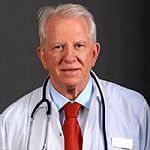
Dr. Avikam AREL
Pediatric dermatologist
-
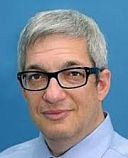
Dr. Nir NATANSON
Dermatologist
-
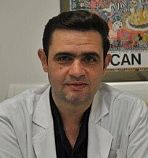
Dr. Yaakov MASHIAH
Dermatologist
-

Prof. Eli Sprecher
Dermatologist
-

Dr. Ronen ALKALAI
Dermatologist
-
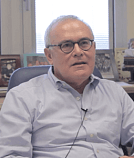
Prof. Yaakov SHECHTER
Oncodermatologist
-

Prof. Dani BEN-AMITAI
Pediatric dermatologist
-
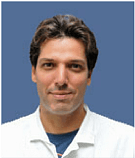
Dr. Ehud MILLER
Dermatologist
Oncodermatologist
Plastic surgeon -

Dr. Roni Shapira
Oncodermatologist
Our partner clinics
Reviews
-

Oleg S.
My cancer treatment in Turkey was an incredible experience. From the excellent medical expertise to the individualized attention to my needs, every detail was taken care of. I felt that my well-being was a priority for the entire team. The results of the treatment speak for themselves and I am grateful for this incredible experience in Turkey. -

Vladimir V.
I decided to go to Turkey for cancer treatment and it was the best decision of my life. The doctors gave me a clear treatment plan, explained each step and were always available to answer my questions. And, of course, the results of the treatment exceeded my expectations. Thanks to this team, I'm back to normal. -

Nadezhda K.
I came to the clinic in Turkey with a cancer diagnosis and serious concerns. But thanks to the professional and attentive attitude of the doctors, my hope for recovery has increased. The treatment was effective and the level of care and comfort provided by the clinic is simply impressive. Thank you to the entire team for their hard work and care. -

Dmitry I.
Treatment in Korea not only helped me beat cancer, but also left me with incredibly positive memories. The doctors were true professionals and the support and care provided by the team made my road to recovery smooth and confident. Thank you for a second chance at life! -

Marina K.
The treatment experience in Korea exceeded my expectations. The doctors are really thorough in their approach to each case and their innovative methods helped me overcome my difficulties. The organization of the trip was excellent and I am grateful to everyone who made it possible. -

Alexander P.
After being diagnosed with cancer, he decided to go to Korea for treatment. I cannot overemphasize the level of care and professionalism I encountered there. The team helped not only with medical issues, but also with adaptation in a foreign country. Thank you for the new hope and encouragement! -

Elena S.
Going to Korea for treatment was the best decision of my life. Professional doctors and advanced treatments have given me hope and support. The organization of the trip was top notch and I am grateful to the entire team for their care. -

MIKHAIL VLADIMIROVICH
"My children took me to doctors with my leg, but we have a lot of lunatics who can't tell us anything. When I found out that my sons wanted to take me to Israel for treatment, I protested, but it was expensive! But everything went quickly, replaced my joint, did not keep me in the hospital not one extra day. Prices are normal for such quality, I began to walk without pain. That's what smart doctors mean." -

ANDREI
"I went to doctors for several months, they could not diagnose me, as is usually the case with us. A friend advised me to come here, he had already been treated here himself. From myself I can say the attitude on 5 +! They ordered a ticket and found me a place to stay at a normal price. In the hospital they examined me, analyzed me, analyzed all kinds of devices and diagnosed me. I have already undergone a course of chemotherapy, and if I need check-ups, I will apply only here. And what would happen to me if I continued to be examined in our hospitals? It's scary to even think about -

Irina Kucherenko
Really enjoyed the MDI clinic. Great attitude towards patients. Applied with the problem of psoriasis (>10 years trying to cure and nothing helps). I was worried about how everything would go, as I was flying from another country, but before arrival everything was discussed with me: what to do, how much time of stay will be needed, cost, accommodation, absolutely everything and I was not so worried. Upon arrival I was met, driven to the hotel and was in constant contact with me. Also gave a local SIM card for communication and internet, drove and accompanied everywhere. Was in Tel Aviv for 3 days and during this time visited the doctor, did all the necessary tests and prescribed treatment. After leaving, I am still in touch with the curators and doctors to find out how the treatment is going, whether the medication is helping, my general health, whether I need to send more medication, etc. I am very glad that I visited MDI clinic, as it was the first time I saw the effect of treatment and that it actually helps. Words can't describe the emotions and feelings when you realize that you will finally be healthy and you can no longer be self-conscious about your skin, wear open clothes, put your hair up however you want, etc. -

Konstantin Zubarev
We thank you from the bottom of our hearts for your concern. From the first contact to the last minute of being in Israel, we constantly felt cared for. Meeting at the airport, organization of accommodation, support during the quarantine, useful household advice, help in buying food, accompaniment to procedures and consultations with doctors, help in buying medicines, a clear plan of action and constant information about the progress of treatment - our stay in Tel Aviv was so competently organized that the whole treatment took place in an atmosphere of confidence, calmness and relaxation. There was no stress of being in another country, even though the reason for coming to Israel was not a fun one - my father's metastatic prostate cancer. Special thanks to Catherine, for her heartfelt attitude and involvement with us. Thank you so much! Success, prosperity and grateful patients!
How we are working

Форма обратной связи
"*" indicates required fields
News
 Hormone therapy for cancer in Turkey
Hormone therapy for cancer in Turkey
Hormone therapy is an important treatment for cancer, especially for breast cancer, prostate cancer, and other hormone-sensitive tumors. In Turkey, as in many other countries, innovative research and new approaches to hormone therapy are being developed, making the country a leading center for cancer treatment in the region.
One of the major benefits of hormone therapy is its ability to weaken or stop tumor growth by blocking the action of hormones that promote cancer. In Turkey, oncology specialists are actively applying this method based on advanced research and clinical experience.
One of the key applications of hormone therapy in Turkey is the treatment of breast cancer. This type of cancer often depends on estrogen for its growth, and hormone therapy aims to block the action of these hormones. Turkish oncologists use various drugs such as tamoxifen, letrozole and anastrozole to suppress the growth of cancer cells and improve the prognosis for patients.
Another important area of hormone therapy in Turkey is the treatment of prostate cancer. Hormonal therapy may be used as primary or adjuvant treatment, or in case of relapse. The use of andrgen deprivation and other hormonal agents can significantly slow disease progression and improve patients’ quality of life.
However, despite the effectiveness of hormone therapy, it can cause certain side effects such as hyperpigmentation, gynecomastia, hypertension and others. Therefore, doctors in Turkey carefully monitor patients and adjust the treatment regimen according to their individual needs.
Turkey is an important center for cancer treatment, including hormone therapy. With the constant introduction of the latest research and treatment methods, this country continues to improve cancer outcomes and provide high quality medical care to patients.
 Immunotherapy for cancer in Turkey
Immunotherapy for cancer in Turkey
Immunotherapy is one of the most innovative and promising methods of cancer treatment. This approach is based on using the immune system to fight cancer cells. Surgery and chemotherapy treatments destroy cancer cells directly. The immune method activates all the body’s forces against malignant neoplasms.
One of the most common approaches to immunotherapy is the use of drugs aimed at blocking proteins – checkpoint inhibitors – that suppress immune system activity. This promotes the effective attack of cancer cells.
CAR-T therapy involves modifying a patient’s T cells to enhance the attack of cancer cells. The modified T cells are returned to the patient’s body where they can fight cancer more effectively.
The technique also consists of developing and administering vaccines that stimulate the immune system to recognize and destroy cancer cells. Unlike chemotherapy, immunotherapy is generally characterized by fewer side effects because it aims to activate the immune system rather than directly damaging healthy tissue.
This method can lead to long-term cancer control, even after treatment has ended. This means that patients can have long periods of remission and improved quality of life.
Leading cancer centers in Turkey are equipped with modern equipment and have highly qualified medical staff capable of effectively applying immunotherapy methods.
Immunotherapy is a powerful tool in the fight against cancer, providing patients with more effective and less toxic treatments. In Turkey, this treatment method is widely available and continues to show outstanding results in the treatment of cancer.
 Radiation therapy in Turkey
Radiation therapy in Turkey
Radiation therapy is one of the main treatments for cancer and is used all over the world. In Turkey, radiation therapy occupies a significant place in the comprehensive treatment of cancer due to modern technology and high level of medical care.
Turkey introduces advanced techniques and uses modern medical equipment for radiation therapy. This includes linear gas pedals, cyberknife and other advanced systems that allow us to precisely and effectively irradiate tumors.
Medical centers in Turkey attract qualified oncologists and radiologists with extensive experience in radiation therapy. This ensures that patients receive quality and professional service.
Each patient is thoroughly examined and an individualized treatment plan is drawn up, taking into account the peculiarities of their disease and general state of health. This allows for optimal results and minimizes side effects.
Radiation therapy in Turkey is often used in combination with other treatments such as surgery, chemotherapy, immunotherapy and targeted therapy. This comprehensive approach increases the effectiveness of treatment and improves patient prognosis.
Medical centers in Turkey provide comfortable conditions of stay for patients and their attendants. This includes modern wards, quality food and friendly staff who provide patients with support and care throughout their treatment.
Radiation therapy in Turkey is an effective and safe method of cancer treatment, which provides patients with high quality medical care and comfortable conditions of stay. With state-of-the-art technology, highly qualified specialists and a comprehensive approach to treatment, radiation therapy in Turkey is becoming an increasingly popular choice for many patients.
 Target therapy in Turkey
Target therapy in Turkey
Targeted therapy is an innovative approach to cancer treatment based on identifying and blocking specific molecular targets within cancer cells. In Turkey, this technique is being actively introduced and successfully applied in the treatment of various types of cancer.
Turkey’s medical industry is renowned for its highly qualified specialists in oncology and genetics, who provide a high level of cancer diagnosis and treatment. Many medical centers in the country are equipped with advanced equipment and laboratories to perform molecular genetic analyses and identify mutations sensitive to targeted therapies.
One of the main advantages of targeted therapy is its personalized nature. In Turkey, each patient is given a thorough molecular genetic diagnosis to identify unique mutations in their cancer cells. Based on these data, an individualized therapy plan is developed, including the selection of the most effective medications.
Many medical centers in Turkey have access to the latest drugs. Targeted therapy is often used in combination with other treatments such as surgery, chemotherapy, and radiation therapy. This enhances the effect of the treatment and increases the chances of a full recovery. In Turkey, doctors take a comprehensive approach to cancer treatment, incorporating various therapies to achieve the best results.
Medical institutions in Turkey are actively introducing innovative technologies and developing new drugs for targeted therapy. This includes developing more precise and effective molecular inhibitors, antibodies and other drugs aimed at blocking specific molecular pathways in cancer cells. Thanks to innovative technologies and drugs, Turkish doctors are able to offer patients modern and effective treatment methods.
 Bone marrow transplantation in Turkey
Bone marrow transplantation in Turkey
Bone marrow transplantation is one of the most complex and intensive procedures in oncology and hematology. Turkey, with its advanced medical infrastructure and highly trained specialists, offers a number of advantages for patients in need of this procedure.
Turkey is famous for its skilled specialists in oncology, hematology and transplantology. The country’s leading medical centers attract experienced physicians and researchers who specialize in bone marrow transplantation. This ensures that patients have access to high quality medical care and professional care at all stages of the procedure.
Medical facilities in Turkey are equipped with the advanced equipment and technology necessary for a successful bone marrow transplant. This includes specialized bone marrow transplant units, state-of-the-art operating suites, high-tech laboratories and intensive care units.
Doctors in Turkey take an individualized approach to each patient, taking into account their unique needs and disease patterns. Before undergoing a bone marrow transplant, each patient undergoes a comprehensive examination and health assessment to develop an optimal treatment plan.
Medical services in Turkey are often available at lower prices compared to other countries in Western Europe and North America, while not compromising on the quality and level of medical expertise. This makes Turkey an attractive destination for patients looking for high quality treatment at affordable prices.
Medical centers in Turkey are constantly introducing the latest innovative treatments in the field of bone marrow transplantation. This includes the use of new drugs, technologies, and transplant approaches that help improve patient outcomes and prognosis.
Medical facilities in Turkey strictly adhere to international safety and quality standards when performing bone marrow transplants. This includes following strict sterilization protocols, infection control, post-operative patient follow-up, and more.
 Chemotherapy in Turkey
Chemotherapy in Turkey
Turkey’s medical industry is known for its highly skilled oncologists and chemotherapy specialists. Physicians and medical staff receive extensive training and have years of experience working with chemotherapy patients. This ensures that patients receive the highest level of medical care and concern throughout their treatment.
Medical facilities in Turkey are equipped with modern equipment and the use of advanced technologies in the field of chemotherapy. This includes innovative intravenous drug infusion machines, precision drug dosing systems and real-time patient monitoring.
One of the main principles of chemotherapy in Turkey is an individual approach to each patient. Before treatment begins, a thorough assessment of your health status, type and stage of disease, and other factors that may affect the choice of the best chemotherapy regimen is performed. This allows the treatment to be tailored to each patient’s individual needs as much as possible and to achieve the best possible results.
Many medical centers in Turkey have access to the latest innovative drugs and participate in clinical trials to develop new chemotherapy methods and regimens. This allows patients to access advanced therapeutic options and participate in the advancement of medical science.
While the quality of medical care in Turkey remains high, the cost of chemotherapy is generally more affordable than in many other countries, making Turkey an attractive choice for patients looking for quality treatment at affordable prices.
The benefits of chemotherapy in Turkey include highly qualified specialists, state-of-the-art equipment and technology, personalized treatment, access to innovative drugs and clinical trials, patient comfort and support, and affordability of treatment. These factors make Turkey one of the leading medical destinations for chemotherapy and attract patients from all over the world.
 Kidney cancer treatment in Turkey
Kidney cancer treatment in Turkey
Renal oncology is a serious disease that requires ongoing research and the development of new treatment approaches. The latest research in this area represents the hope for more effective diagnostic and therapeutic methods.
One of the key areas of recent research is molecular classification of tumors. Scientists are studying the genetic and molecular characteristics of the disease to identify specific tumor subtypes that may affect prognosis and response to treatment. This allows you to personalize your treatment approach and improve outcomes for patients.
Immunotherapy has become one of the most promising areas. New research in immunotherapy includes the development of innovative drugs, such as proven point inhibitors and CAR-T cell inhibitors, that aim to activate the immune system to fight cancer cells. This opens up new possibilities for treating the disease, especially when traditional methods fail.
Metabolomics, which studies metabolic processes in the body, is an increasingly important area of research in cancer. Research in this area is helping to identify unique metabolic profiles of tumors that can be used to diagnose, assess prognosis, and develop new therapies.
Artificial intelligence (AI) is playing an increasingly important role in oncology research, including kidney cancer. Machine learning and data analytics algorithms are used to process large amounts of information, including medical educations, genomic data, and images to identify new patterns, predict prognosis, and optimize treatment strategies.
Clinical trials remain an important tool in the development of new methods for the diagnosis and treatment of renal cancer. Participating in clinical trials allows patients to gain access to cutting-edge treatments, as well as contribute to science and help other patients in the future.
 Throat cancer treatment in Turkey
Throat cancer treatment in Turkey
Throat cancer is a dangerous cancer that can have a serious impact on a patient’s quality of life. However, thanks to the constant advancement of medical science and technology, there are many modern treatments that can improve the prognosis of patients.
Modern methods of molecular genetic diagnostics can identify unique mutations and characteristics of cancer cells, which can help in individualizing the treatment approach and selecting the most effective drugs.
Pembrolizumab is an immunotherapy drug that blocks the PD-1/PD-L1 signaling pathway, enhancing the body’s immune response to cancer cells. It has been approved to treat the disease when other treatments fail. Multiple clinical trials have shown its effectiveness in increasing survival and improving prognosis for patients.
Nivolumab is also a PD-1 inhibitor, which stimulates the body’s immune system to attack cancer cells. It has been approved for the treatment of various forms of cancer, including metastatic soluble keratinosis and low differentiation cancers. Nivolumab demonstrates a high level of efficacy and tolerability, making it an important drug in the treatment of this disease.
Cetuximab is a monoclonal antibody that blocks receptors for epidermal growth factor (EGFR), which prevents cancer cells from growing and developing. It is often used in combination with radiotherapy or chemotherapy to treat throat cancer. Many clinical trials have demonstrated its efficacy in improving survival and disease control.
In recently completed clinical trials, the use of Pembrolizumab in combination with chemotherapy was found to result in a significant increase in survival in patients with recurrent or metastatic type of disease
 Bladder cancer treatment in Turkey
Bladder cancer treatment in Turkey
Bladder oncology represents a significant medical problem worldwide. Despite existing treatments that include surgical removal of the tumor, chemotherapy, and immunotherapy, new drugs and treatments promise to improve the prognosis and quality of life for patients with this disease.
One of the most significant breakthroughs in the treatment of the disease is the use of immunotherapy. Drugs such as inhibitors of programmed cell death 1 (PD-1) and its ligand (PD-L1) activate the body’s immune system to better fight cancer cells. This treatment method has already shown significant results in treating patients with metastatic and recurrent types of disease, and research continues to expand its use.
Although chemotherapy is one of the standard treatments, recent research is focusing on developing more effective and less toxic drugs. For example, the use of combination chemotherapy regimens that include novel agents such as doxorubicin and navelbine can significantly improve treatment outcomes and reduce side effects.
New research is also focusing on the development of combination therapies involving a mix of different therapeutic approaches. For example, combining immunotherapy with chemotherapy or targeted therapy may enhance treatment effects and improve outcomes for patients with bladder cancer.
In addition to new treatments, research is also focusing on prevention and early diagnosis of the disease. Advances in screening methods and more accurate diagnostic tests allow the disease to be detected earlier, when it is more amenable to successful treatment.
Overall, new drugs and treatments for bladder cancer offer new opportunities to improve patient outcomes and survival. Further research and advances in technology in this area could significantly improve the prognosis for patients suffering from this serious disease.
 Lip cancer treatment in Turkey
Lip cancer treatment in Turkey
Lip cancer, although rare compared to other cancers, is still a serious health threat, especially in individuals exposed to prolonged sun exposure and those who use tobacco and alcohol. Despite advances in diagnosis and treatment, new research in this area promises to improve therapeutic outcomes and patient survival.
One of the most significant breakthroughs in the treatment of the disease in Turkey is the development of molecular diagnostics. New methods for analyzing genetic material are identifying specific mutations and molecular markers that can help individualize treatment and predict outcome.
Optical coherence tomography (OCT) is an innovative educational technique that provides high quality, high resolution tissue images. In recent years, OCT has begun to play an increasingly important role in the diagnosis and monitoring of the disease. This method allows visualization of structural changes in lip tissue with high clarity, making it a valuable tool for diagnosis and evaluation of treatment efficacy.
Recent research in immune genetics is helping to understand the role of the immune system in the development and progression of this disease. Analyzing genetic markers associated with immune response may help predict response to immunotherapy and identify patients who may benefit most from this treatment modality.
Nanotechnology represents a promising method for drug delivery and education in cancer cells. Nanoparticles can be used on cancer cells, increasing the effectiveness of the therapy and reducing toxicity to healthy tissues.
Advances in e-medicine are opening up new opportunities for real-time monitoring of lip cancer patients and remote consultations. This allows for better patient monitoring, reduced risk of complications, and improved patient outcomes.
Equally important is the research in the area of the disease. Programs to prevent this disease, which include promoting healthy lifestyles, regular dental checkups, and limiting tobacco and alcohol use, play a key role in reducing its prevalence.